 U.S. Marks End to a Long War for an Uncertain Iraq
U.S. Marks End to a Long War for an Uncertain Iraq
BAGHDAD — At a crowded market in the city center here, the flotsam of the war is for sale. Ripped Fuel workout supplement. Ready-to-eat meals, macaroni and cheese ”Mexican style.” Pistol holsters. Nothing seems off limits to the merchants out for a quick dinar, not even a bottle of prescription pills from a pharmacy in Waco, Tex., probably tossed out by a departing soldier.
The concrete blast walls that shielded the shopping stalls have lately come down. Since then, three explosions have struck the market, killing several people.
”This will be an easy target for car bombs,” said Muhammad Ali, a merchant who lost two brothers during the cruelest times of the conflict. ”People will die here.”
After nearly nine years, about 4,500 American fatalities and $1 trillion, America’s war in Iraq is about to end. Officials marked the finish on Thursday with a modest ceremony at the airport days before the last troops take the southern highway to Kuwait, going out as they came in, to conclude the United States’ most ambitious and bloodiest military campaign since Vietnam.
For the United States, the war leaves an uncertain legacy as Americans weigh what may have been accomplished against the price paid, with so many dead and wounded. The Iraqi dictator, Saddam Hussein, was vanquished, but the failure to find illicit weapons undermined the original rationale, leaving a bitter taste as casualties mounted. The lengthy conflict and repeated deployments strained the country and its resources, raising questions about America’s willingness to undertake future wars on such a grand scale.
Iraqis will be left with a country that is not exactly at war, and not exactly at peace. It has improved in many ways since the 2007 troop ”surge,” but it is still a shattered country marred by violence and political dysfunction, a land defined on sectarian lines whose future, for better or worse, is now in the hands of its people. …
—[MORE] Leaving Iraq / The New York Times
- Status of Forces Agreement (SOFA) : what is it, and how might one be utilized in Iraq? / R. Chuck Mason. [31 p. PDF] / Congressional Research Service, 2008.
Multilateral and bilateral SOFAs — Provisions of Status of Forces Agreements — Security arrangements and SOFAs — Bilateral SOFAs : historical practice — Prospective SOFA with Iraq — Survey of the current Status of Forces Agreements.
- Status of Forces Agreement (SOFA): What Is It, and How Might One Be Utilized In Iraq [PDF]. Congressional rept. Ft. Belvoir : Defense Technical Information Center, 16 JUN 2008.
The United States has been party to multilateral and bilateral agreements addressing the status of U.S. armed forces while present in a foreign country. These agreements, commonly referred to as Status of Forces Agreements (SOFAs), generally establish the framework under which U.S. military personnel operate in a foreign country, addressing how the domestic laws of the foreign jurisdiction shall be applied toward U.S. personnel while in that country. In light of the Declaration of Principles, signed by U.S. President George W. Bush and Iraqi Prime Minister Nouri Kamel Al-Maliki on November 26, 2007, and the possibility that the United States will enter into a SOFA with the Government of Iraq, there is considerable interest in Congress in SOFAs, what they may cover, and how they have been concluded in the past. Formal requirements concerning form, content, length, or title of a SOFA do not exist. A SOFA may be written for a specific purpose or activity, or it may anticipate a longer-term relationship and provide for maximum flexibility and applicability. It is generally a stand-alone document concluded as an executive agreement. A SOFA may include many provisions, but the most common issue addressed is which country may exercise criminal jurisdiction over U.S. personnel. Other provisions that may be found in a SOFA include, but are not limited to, the wearing of uniforms, taxes and fees, carrying of weapons, use of radio frequencies, licenses, and customs regulations. SOFAs are often included, along with other types of military agreements, as part of a comprehensive security arrangement with a particular country. A SOFA itself does not constitute a security arrangement; rather, it establishes the rights and privileges of U.S. personnel present in a country in support of the larger security arrangement. SOFAs may be entered based on authority found in previous treaties and congressional actions or as sole executive agreements.
- U.S.-Iraq Strategic Framework and Status of Forces Agreement: Congressional Response [27 p. PDF]. Congressional rept. Ft. Belvoir : Defense Technical Information Center, 11 JUL 2008.
On November 26, 2007, President Bush and Iraqi Prime Minister Nouri al Maliki co-signed the Declaration of Principles for a Long-Term Relationship of Cooperation and Friendship Between the Republic of Iraq and the United States of America, which set out a number of issues concerning, among other things, a security agreement between the United States and Iraq. Since the announcement, the Administration has announced that there will be two agreements negotiated, a Status of Forces Agreement (SOFA) providing the legal basis between the two countries for the continued presence and operation of U.S. armed forces in Iraq once the U.N. Security Council mandate expires on December 31, 2008, and a Strategic Framework agreement (together with the SOFA, the Iraq Agreements or Agreements) to cover the overall bilateral relationship between the two countries. Several Members of Congress responded with demands that Congress be involved in creating the planned Agreements, from negotiation to implementation, and took action to ensure such involvement. Congress has proposed numerous pieces of legislation that would increase its role in creating these Agreements, from calling for executive-branch consultation and reporting to requiring formal congressional approval. It has also conducted multiple hearings that have concerned the proposed Agreements, receiving clarification on many important issues from Administration officials and experts. This has also equipped Congress with information pertinent to deciding what further action can be taken to involve Congress more in the agreement-making process. Several options remain available to Congress regarding the Iraq Agreements.




















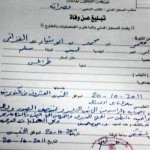

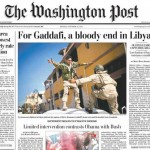
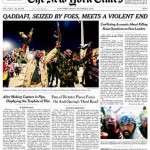


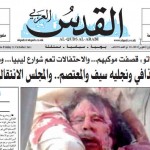


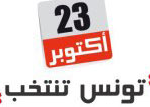
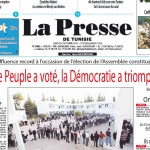
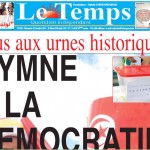
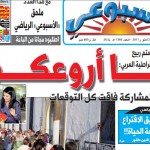
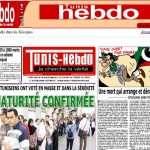
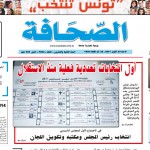
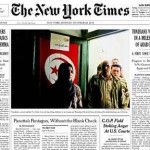



 IkhtiarTounes
IkhtiarTounes